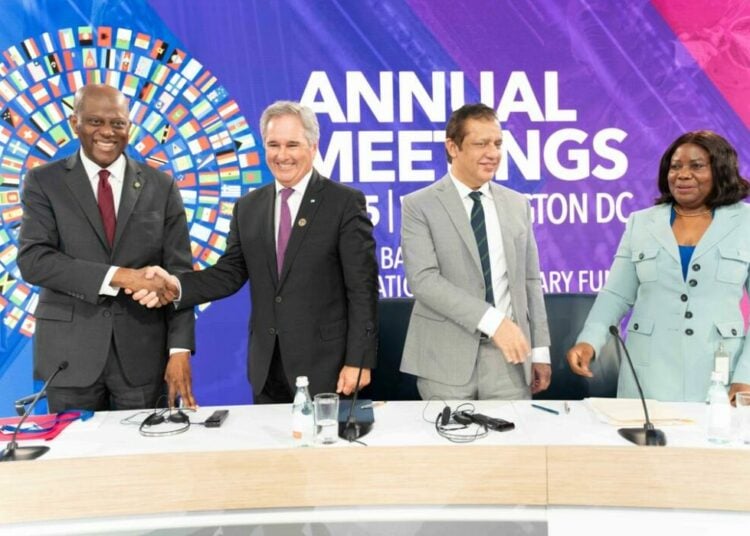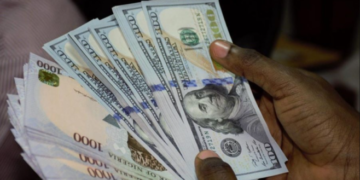At a time when emerging markets are navigating turbulent global headwinds, Nigeria’s voice is growing louder, and more assured.
During this week’s G-24 meetings on the sidelines of the IMF/World Bank Annual Assemblies, Central Bank of Nigeria (CBN) Governor, Olayemi Cardoso, and Minister of State for Finance, Dr. Doris Uzoka-Anite, presented a united front that underscored a shift in tone and substance: Nigeria is back in the room, this time with discipline, data, and direction.
Governor Cardoso told his counterparts that Nigeria’s trade surplus has climbed to 6% of GDP, buoyed by a recalibrated macroeconomic framework that prizes transparency and restraint over interventionism. The message was unmistakable, after years of volatility, Africa’s largest economy is reclaiming its credibility.
“We’ve learned that credibility compounds just like capital,” Cardoso said after the session. “Sound policies, consistency, and transparency are the real assets driving our external balance today.”
The remarks come just weeks before Nigeria assumes the chairmanship of the Intergovernmental Group of Twenty-Four (G-24), succeeding Argentina on November 1, 2025. The move positions Nigeria to shape the developing world’s agenda on debt, digital finance, and equitable global reform, issues that have long defined the G-24’s identity but often lacked coherent advocacy.
Cardoso, speaking on behalf of Finance Minister and Coordinating Minister of the Economy Wale Edun, pledged to keep the group focused on “inclusive growth, equity, and global stability,” adding that Nigeria will “sustain momentum in areas that matter most to emerging and developing economies.”
The symbolism of Nigeria’s new role extends far beyond multilateral protocol. For much of the past two years, the Central Bank’s Cardoso Doctrine has become shorthand among investors for the country’s sharp pivot back to orthodoxy: clearing a $7 billion FX backlog, unifying the naira exchange rate, and restoring fiscal-monetary coordination.
The results are visible in investor sentiment. Portfolio inflows are returning, the once-volatile naira has stabilized under a transparent “willing-buyer, willing-seller” framework, and market turnover has hit multi-year highs. At home, banks are preparing for recapitalization, while abroad, Nigeria’s policy team is re-engaging multilateral partners through what insiders now call “financial diplomacy by design.”
Minister Uzoka-Anite’s participation at the G-24 meetings reinforced that approach, one that blends fiscal prudence with global collaboration. “Our engagement here is about ensuring Nigeria’s recovery is anchored in credibility, not convenience,” a senior finance ministry official said on the sidelines.
Nigeria’s assumption of the G-24 chairmanship caps a 21-month arc of economic restoration. From a crisis of confidence in 2023, the country has re-emerged as a disciplined advocate for developing-world interests, arguing that reform, not rhetoric, is the most credible path to growth.
In Washington, that message resonated. Delegates cited Nigeria’s shift toward orthodox monetary policy as one of the most consequential course corrections among emerging economies this decade. “They’ve gone from policy experimentation to institutional predictability,” said a participant familiar with the proceedings. “That’s the kind of story investors pay attention to.”
As Nigeria prepares to unveil its G-24 Work Programme, the stakes are high. For CBN Governor Cardoso, the moment offers a global stage to consolidate the reforms that have defined his tenure, and to show that stability, once fragile, can now be exported as a principle of leadership.





